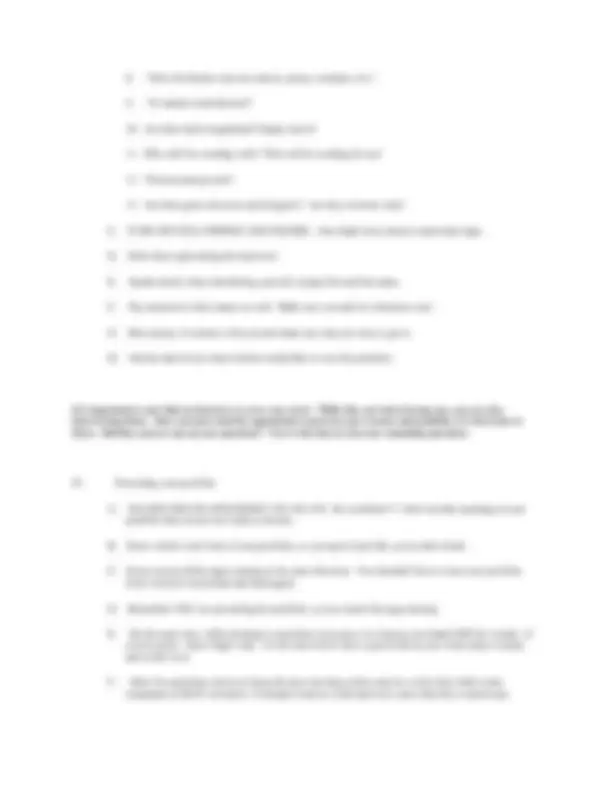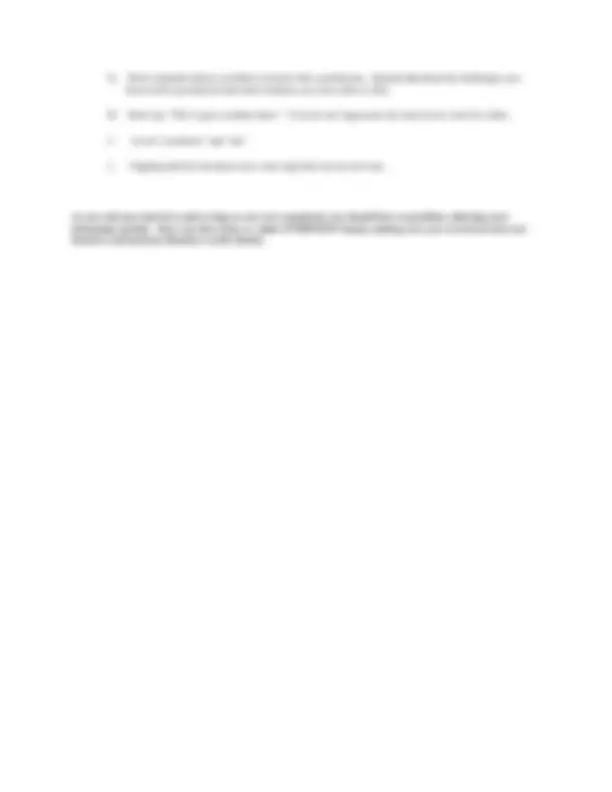




Study with the several resources on Docsity

Earn points by helping other students or get them with a premium plan


Prepare for your exams
Study with the several resources on Docsity

Earn points to download
Earn points by helping other students or get them with a premium plan
Community
Ask the community for help and clear up your study doubts
Discover the best universities in your country according to Docsity users
Free resources
Download our free guides on studying techniques, anxiety management strategies, and thesis advice from Docsity tutors
Guidelines for preparing your appearance and behavior for theatre interviews. Topics include self-presentation, clothing, and interview etiquette. Learn how to make a good first impression and present your portfolio with confidence.
Typology: Lecture notes
1 / 4

This page cannot be seen from the preview
Don't miss anything!



I. Self Presentation A. Hygiene
B. (^) in your bag.Stage/ Lighting technicians, leave the Leatherman at home! If you have to have it with you, then put it C. Your clothes should fit and should be comfortable.
a. Ladies-
III. Interview etiquette A. (^) interest in the position and the theatre as well as prepares you for your interview. THIS ISDo as much research on the place that you are applying to as possible. This shows your genuine ESSENTIAL!!!!!!!!! B. Prepare questions for the interview. Here are some suggested questions.
G. (^) faced with a production and what solutions you were able to offer.Don't complain about a problem you had with a production. Instead talk about the challenges you H. Don't say "This is just a student show." If you're not impressed, the interviewer won't be either. I. Avoid "you know" and "um" J. Tapping and nervous knees are a sure sign that you are nervous.
As you end your interview and as long as you were organized, you should have no problem collecting yourbelongings quickly. Once you have done so, shake EVERYONE' hands, making sure you received at least one business card and any literature on the theatre.